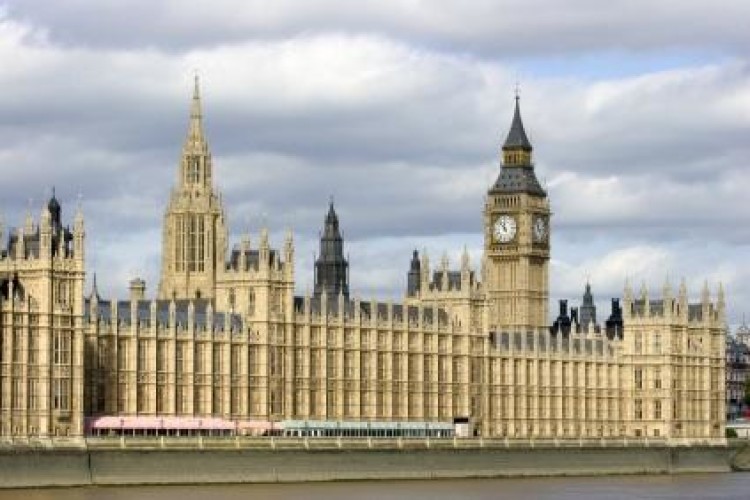The House of Commons transport select committee says that the current strategic road network will not be able to cope with the predicted 46% growth in traffic by 2040.
The MPs also say that transport planning needs to improved, so that road schemes are determined not in isolation but as part of wider transport picture, that includes both passenger and freight traffic across the UK’s road and rail infrastructure.
These are key conclusions from two reports issued today by the transport committee – one examining the proposed planning policy framework for nationally significant road and rail infrastructure projects (the National Policy Statement on National Networks) and the other examining the strategic road network in England.
The latter report states in its summary:
“The strategic road network (SRN) is a crucial part of our national transport system. The Department for Transport (DfT) predicts traffic levels on the SRN to rise by 46% by 2040. The network has suffered from inconsistent funding and changes in government policy over the past two decades.
“Road users deserve clarity on how the network can be part of a high quality integrated transport system.
“If the traffic forecasts are correct, the government will need to increase investment in the road network substantially during the next decade. This requires new long-term funding streams. A consensus would be required to introduce any road user charging scheme across the SRN and the many issues involved would have to be resolved.
“The DfT must develop a transparent system of road planning as part of a wider national transport strategy. The DfT’s National Transport Model (NTM) should be subject to wider scrutiny. The DfT should commission integrated passenger and freight plans for strategic transport routes, rather looking at one mode of transport in isolation.”

The committee is sceptical about the planned reform of the Highways Agency. The MPs says: “We are not convinced by the case for establishing the Highways Agency as a government-owned company (GoCo). The benefits seem achievable through better management of the current agency and its relationship with the DfT. We strongly support the five-year funding plans being introduced for the agency, but do not believe that a change in the agency’s status is required for their delivery.
“If the Highways Agency becomes a GoCo, it will need a strong system of scrutiny. The current proposals for this are inadequate. The new scrutiny body will need the power of a full regulatory authority. The GoCo must view road users as customers and other organisations as partners in the delivery of an integrated transport network.”
In their report examining the National Policy Statement on National Networks, the MPs call on the DfT to:
- specify more types of transport scheme that are needed – such as enhancements to promote regional economic development; better east-west connectivity on the railways; better road and rail connections to ports and airports and to parts of the country currently not well served by existing infrastructure.
- be more candid about the adverse impacts of major transport schemes on local networks and localities. Provide clearer guidance about when the benefits arising from any scheme would justify such impacts.
- address criticisms of the DfT’s road and rail demand forecasts more explicitly.
- include an estimate of the impact on UK carbon emissions of meeting projected demand for growth in road traffic by building more road infrastructure.
- make explicit reference to the desirability of connecting HS2 to the classic rail network, to ensure more people from around the UK can benefit from the new high speed line.
- require promoters of roads schemes to embed improvements in road safety for all road users including pedestrians and cyclists.
Launching the two reports, committee chair Louise Ellman MP said: “The DfT must plan for new road and rail investment by looking at future passenger and freight demand by route or region, not by looking at road or rail in isolation from each other, as is done at the moment.
“There must also be a more transparent system for road planning as part of a wider national transport strategy. As part of this, the DfT’s National Transport Model (NTM) should be subjected to proper scrutiny. The Department has already conceded that it does not work well for forecasting London traffic and needs to be reviewed.
“If our recommendations are overlooked the UK won’t develop the kind of transport infrastructure that it needs over the longer term.”
She added: “The committee strongly supports the five-year funding plans being introduced for the Highways Agency, but is not convinced that it is necessary to change its status. The government has decided to make this change so we call for a far stronger system of regulatory oversight than is currently proposed.
“The SRN is a crucial part of our national transport system but has suffered from inconsistent funding and policy over the past 20 years. If the traffic forecasts are correct, then government will need to increase investment in the road network substantially over the next decade – a period when we also know that tax revenues from fuel duty are bound to decline as vehicles become more fuel efficient. Against that backdrop the committee recognises the need for a consensus around how to raise the money required to modernise the UK’s road network.”
Got a story? Email news@theconstructionindex.co.uk



